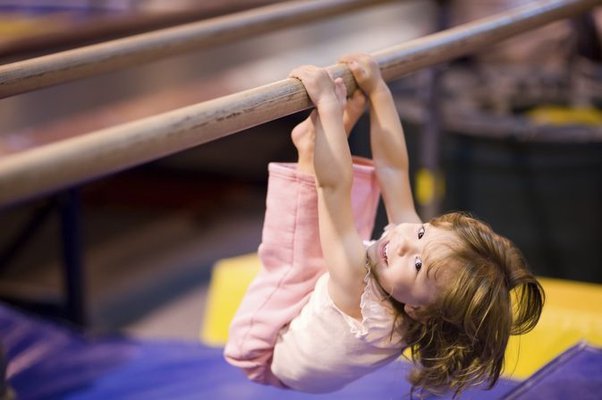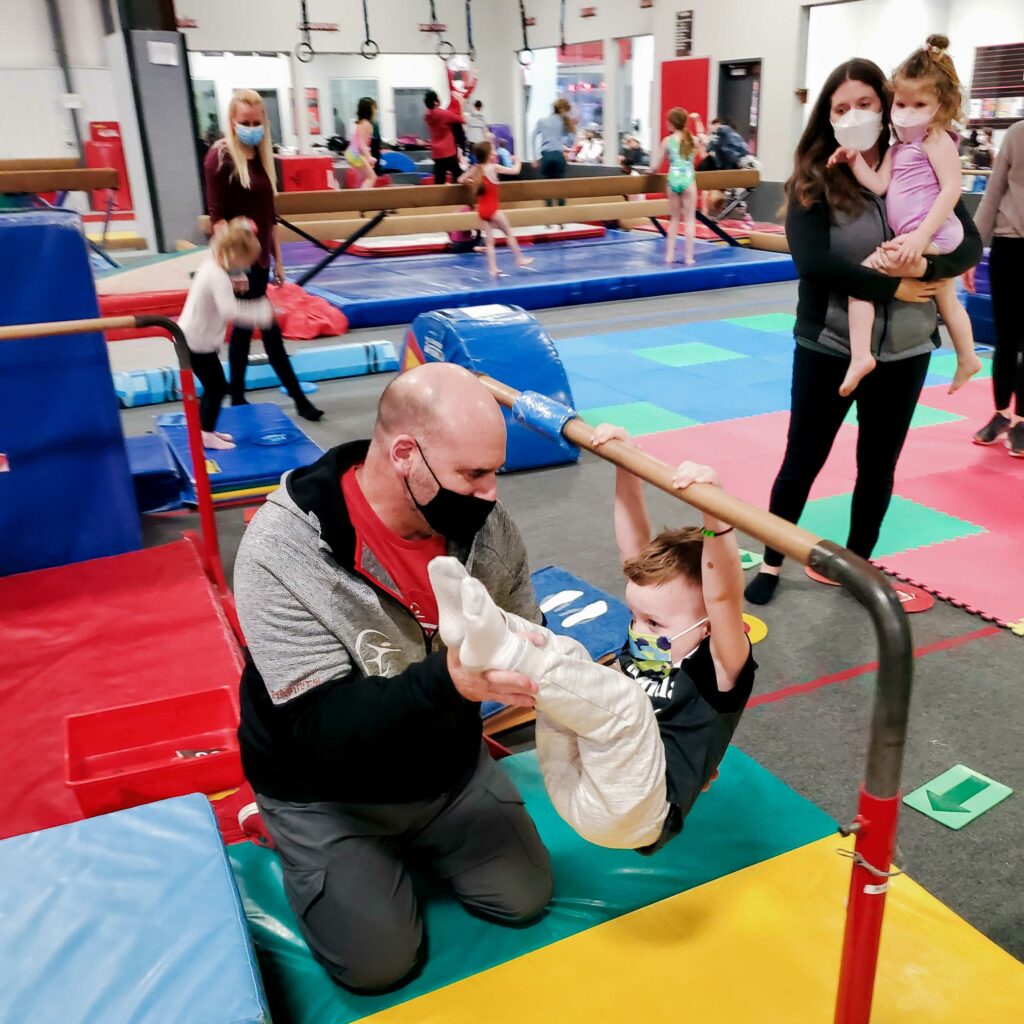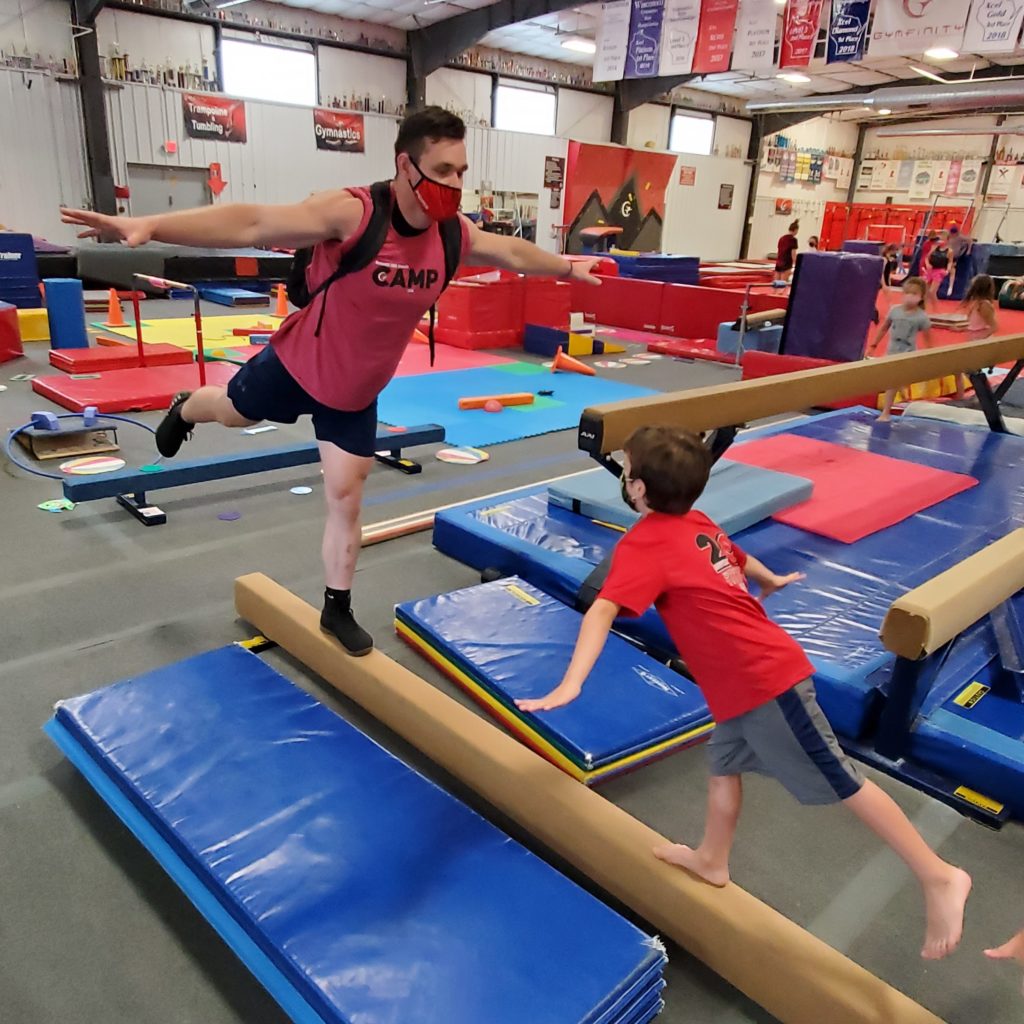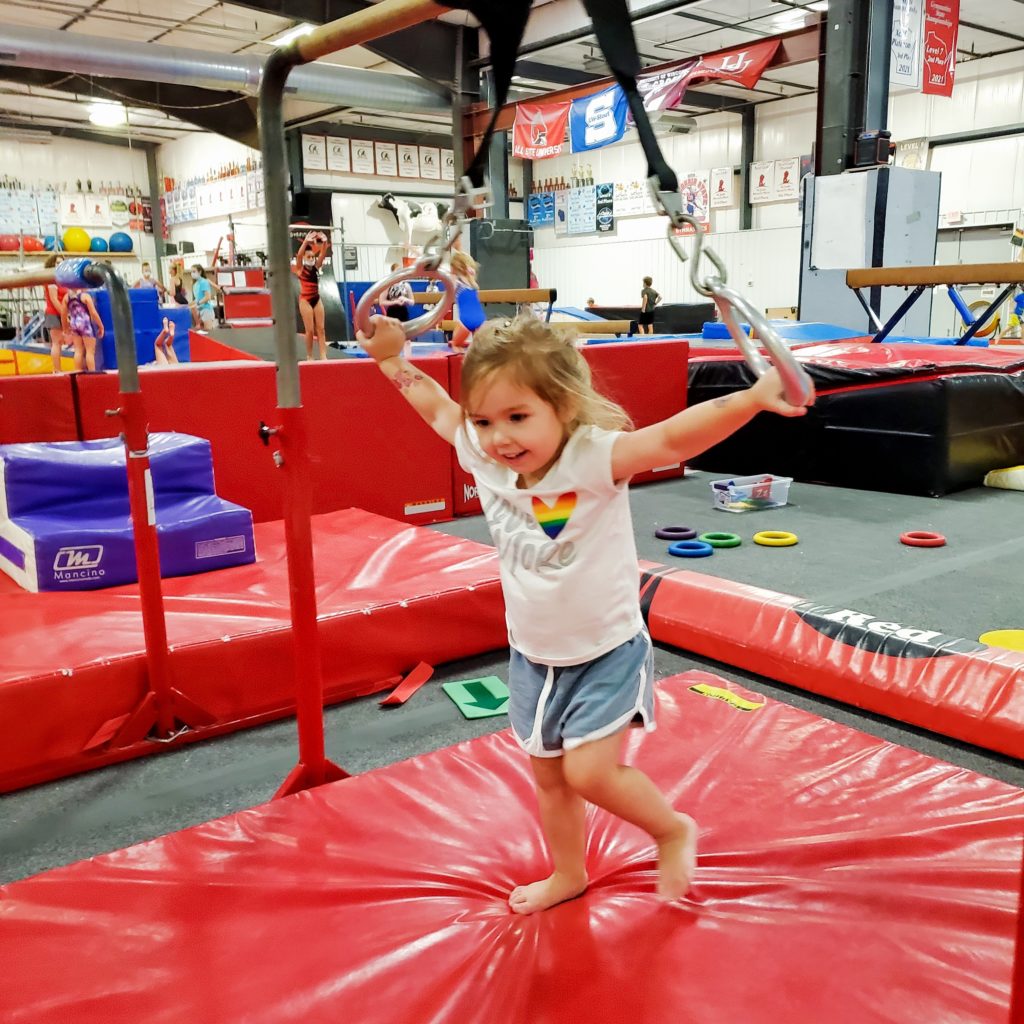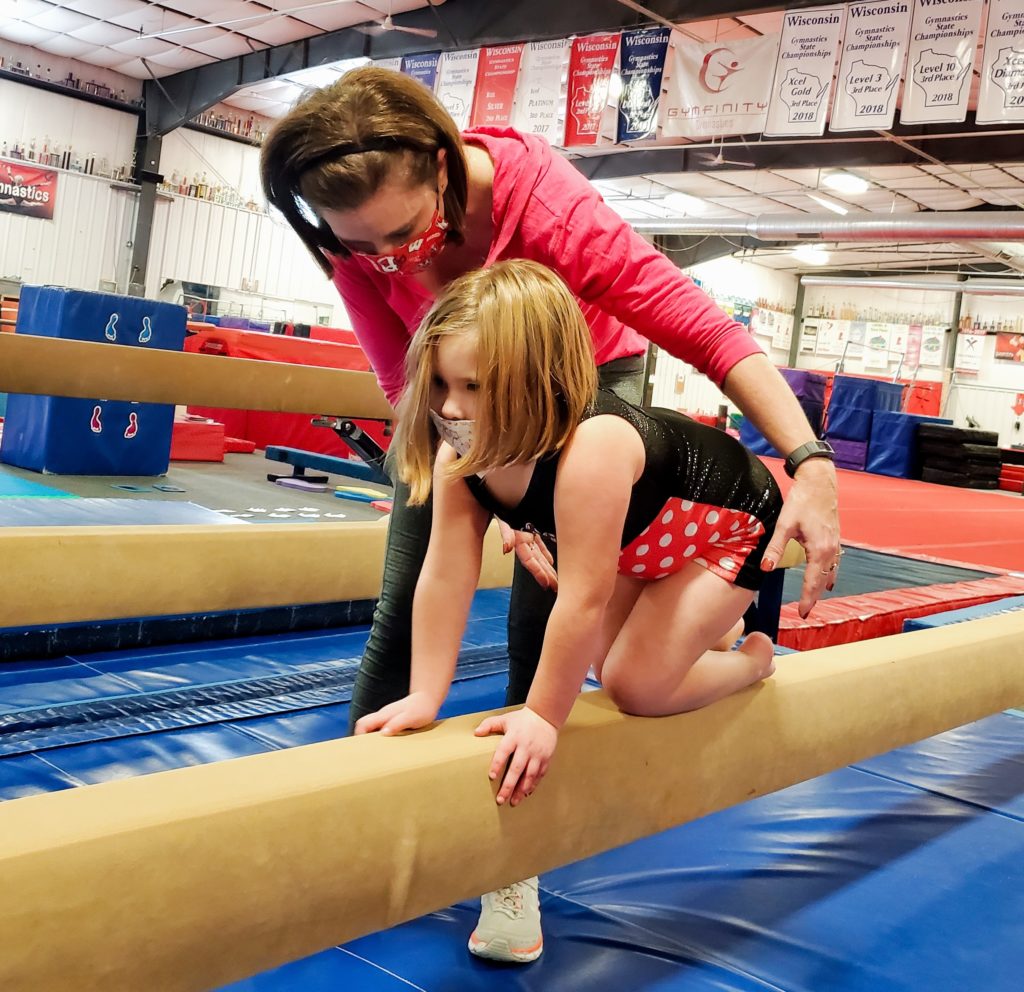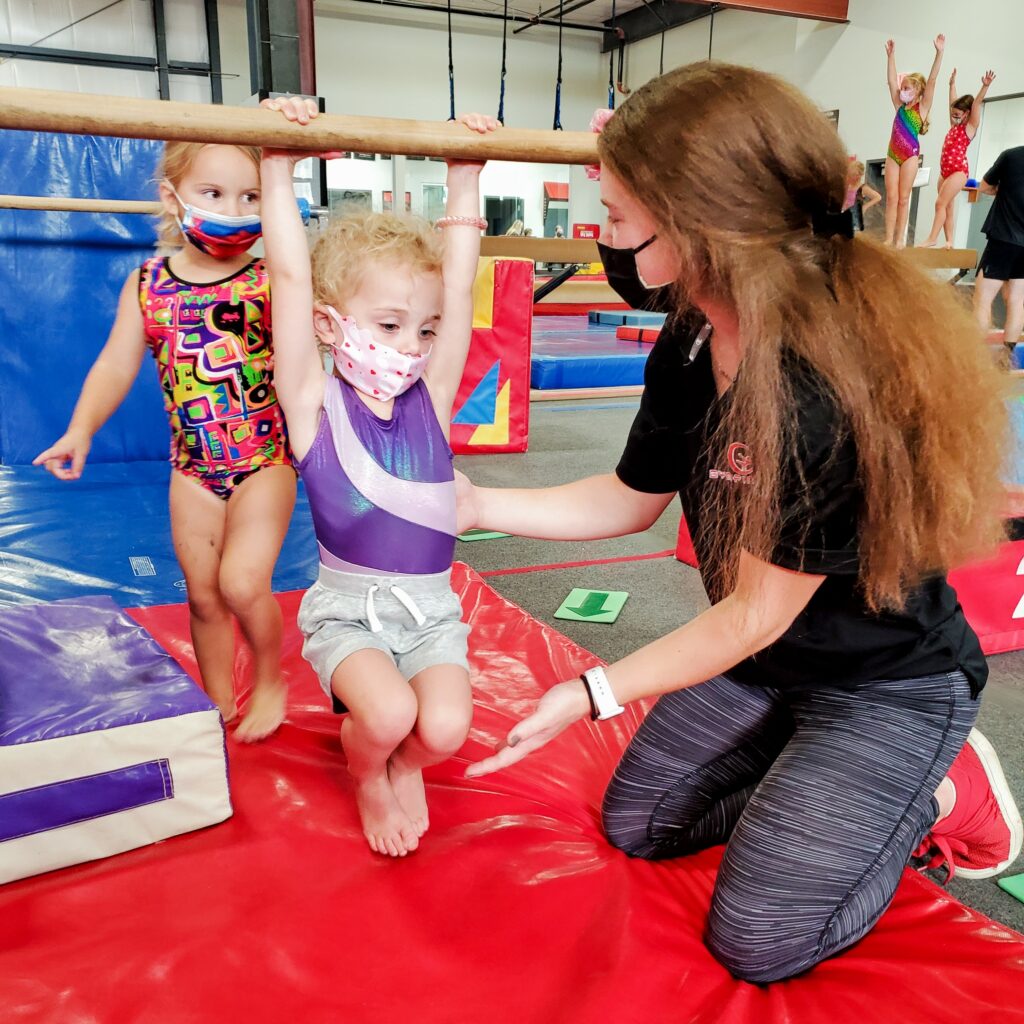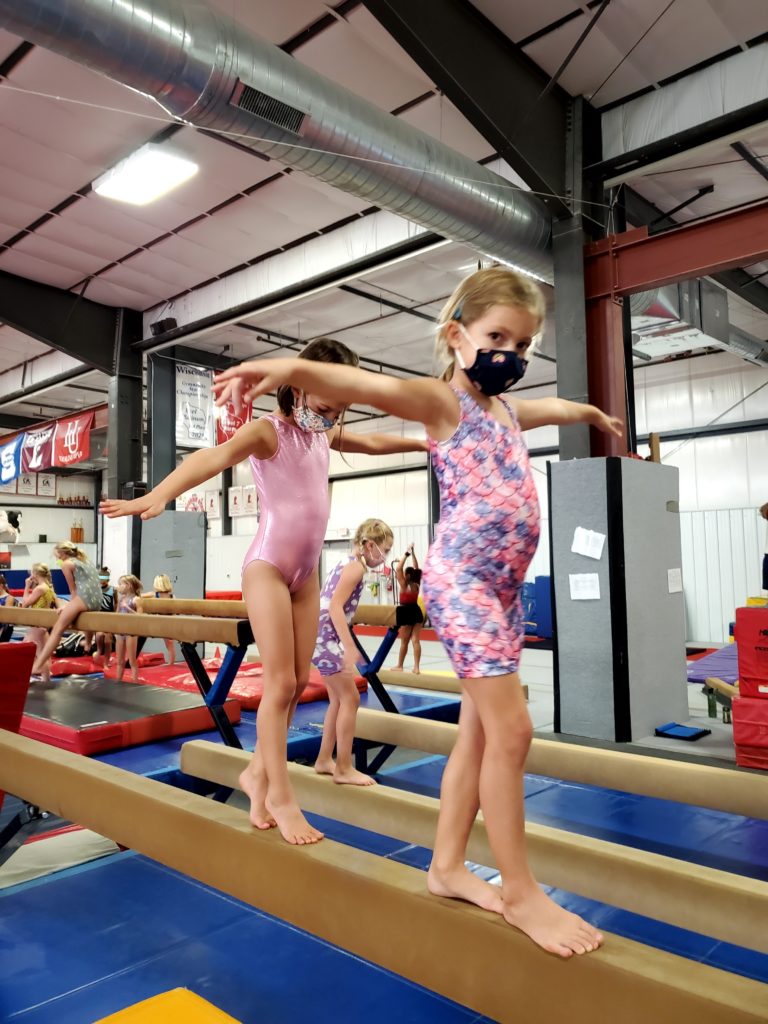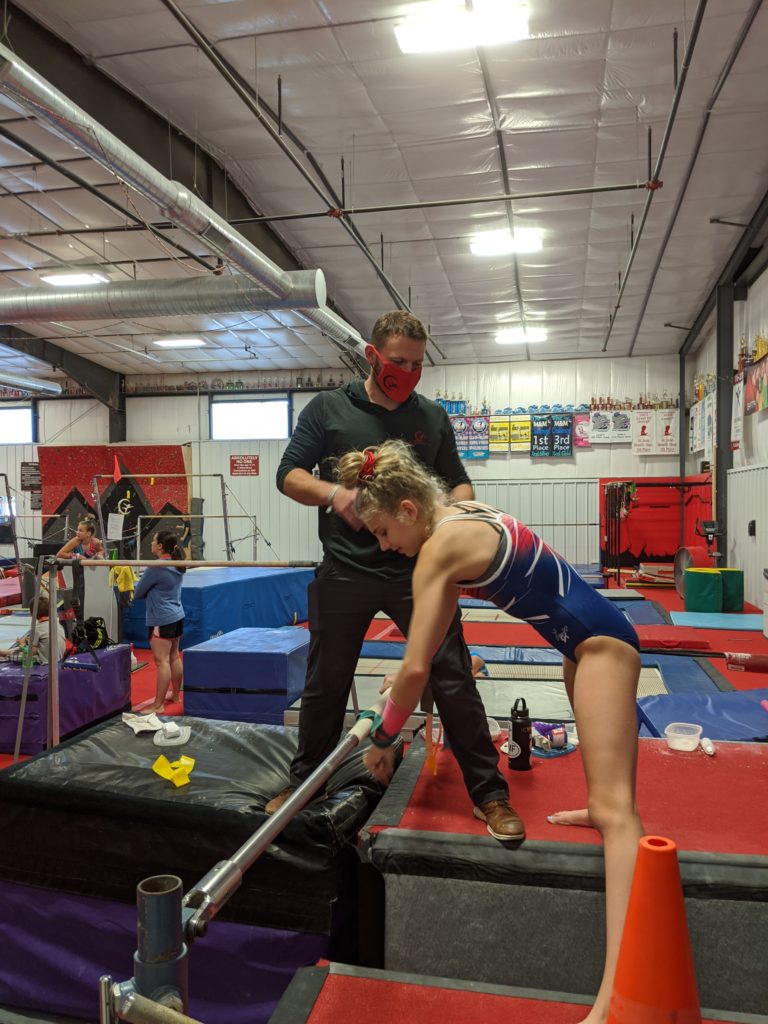Coaching Gymnastics
Why kids Need to Play (or Exploring the Impact of Movement on Learning and Development)
Effective communication between these brain departments is essential for learning, highlighting the importance of movement in facilitating neural connections. The more we can “ship in” forces communication between departments and reinforces the efficiency of operations in general. The company grows and becomes very efficient with the departments working together to make new shipments even easier to receive and process.
Read MoreYouth Sports and the “Goldilocks” dilemma
As a coach I have seen parents that are too hard on their child, pressuring them to win at all costs. Result? The child wants to throw in the towel, pack up the grips, and call it quits. On the flip side (gymnastics pun), a parent who’s too laid-back and disengaged sends a message that commitment and involvement are about as worthwhile as a crooked balance beam. The child loses interest, and sports become just another forgotten thing they tried….once.
Read MorePost Pandemic; Sport Are Important for Kids’ Mental Health
The COVID-19 pandemic has had a detrimental impact on the mental health of children, but participation in sports has proven to be a mitigating factor in alleviating some of this harm. Although the physical and mental benefits of sports are widely acknowledged, recent research emphasizes the crucial role of sports in enhancing children’s mental well-being during the pandemic. This underscores the importance of ensuring easy access to a wide range of sports activities for youngsters.
Read MoreGuest post: The REAL skills learned in gymnastics
In life, just like gymnastics, it takes discipline and dedication to make a difference. Success doesn’t come
over night or without challenge. An important part of success, regardless of the degree, is failure. In
gymnastics, you rarely land a new skill on the first try. You must do drills repeatedly to build the
foundation for the skill. Even then, you will fail. You will need to shake it off, reset, and get up to try
again.
GYMNASTICS FOR AUTISM (edited guest post from USGCOA)
This article is shared from the blog of the United States Gymnastics Club Owners Association (USGCOA). It was originally written to encourage club owners to offer a program in their gyms that allows for children with Autism to experience gymnastics. I did edit it from it’s original, removing the parts that applied to club owners specifically. I felt that the information was worthy of sharing with our families, friends, and fans. Gymfinity does offer a class every Saturday morning for children with special needs. We have had this program since Gymfinity started in 1999. We were then, and remain today, one of the few programs that offer a class for differently abled kids.
Read MoreLife skills through Gymnastics
If the sports program is right, the following landmarks will be developed by practical application in training and in competition or performance. Parents should see each of these displayed as the coach works with the athlete and the athlete participates with the team. Year to year and season to season the athlete maturing in skill and character should be obvious.
Read MoreKeeping Kids Healthy and Bright
Gymnastics is the learning of new skills as the athlete develops into a gymnast. A somersault or roll on the floor develops into a handspring, develops into a front flip, develops into a twisting front flip etc. New pathways are created with every new layer of skill acquisition. This is markedly different than a sport like baseball, for example, where the basic skills are refined as the athlete progresses but no new skills are learned. Throwing catching, swinging and running are the same skills for a 5 year old in T ball as they are for an MLB player, albeit at a different level of performance. So again, gymnastics is at the top of the list for helping children develop. This time it’s their brains.
Read MoreGymfinity’s Secret Sauce
We have assembled the best teachers and coaches of any gym I have seen. It is quality in the head: being able to teach and educate kids, and in the heart; having a passion for teaching, learning, and impacting others that makes these very special coaches.
Read MoreThe Gifts Gymnastics Brings
I love gymnastics and feel that it is the best developmental tool a child can experience. Gymnasts are not only stronger, but smarter, and justifiably feel better about themselves. These are all skills that they can carry with them through life ensuring success and happiness along the way. 41 years ago, when I started teaching gymnastics, I did it because it was fun. As time went on I was shown time and again the benefits that I wrote about above. I saw the kids I coach become doctors, lawyers, mothers, politicians, engineers, counselors, teachers and more. Every one happy, Every one a success. And every day since my decision to teach gymnastics back in 1980, my mission has been validated.
Read MoreCoaching Kids in Difficult Times
Not only do you instruct, but you are also there to support and develop the gymnast as a person. Understand that instead of just coaching, you will need to make positive comments about things outside of gymnastics. Remember the sandwich method: Positive comment -correction- positive summary can apply to more than just skill development.
Read More

